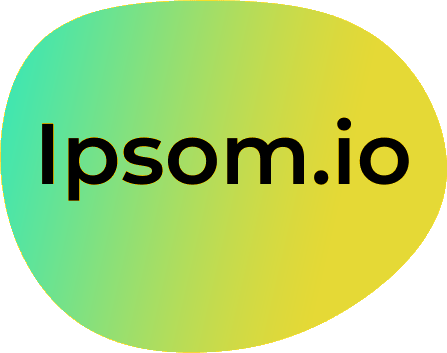White label marketing automation software refers to unbranded SaaS products provided by third-party vendors that agencies can rebrand as their own. This functionality enables agencies to customize their service offerings to meet individual client needs while maintaining brand integrity. This blog explores the benefits, essential features, and popular platforms for white label marketing automation software.
Key Takeaways
- Definition: White label marketing automation software is rebranded software that agencies can personalize for their clients.
- Primary Benefits: Consistent branding, scalable personalization, improved client experiences, and enhanced reporting capabilities.
- Considerations: Choose software based on ease of use, integrations, customization options, and support.
- Popular Platforms: Whatagraph, ActiveCampaign, SE Ranking, Mention, PromoRepublic, and more.
Transform your marketing efforts today with ipsom.io!
Understanding White Label Marketing Automation
What is White Label Marketing Software?
White label marketing software refers to unbranded solutions provided by third-party vendors. Agencies can rebrand these tools as their own, offering personalized services to clients while preserving their brand identity. This customization enables agencies to tailor their offerings according to client needs, enhancing their overall value proposition.
Why Use White Label Tools?
Utilizing white label tools has several benefits. Agencies can reinforce their brand identity through customized reports and dashboards. They can also personalize interactions by incorporating custom logos, brand colors, and tailored messaging for clients. This efficiency saves time in data presentation and client communication. Furthermore, agencies provide unified reporting, streamlining client metrics in one consolidated dashboard.
Market Demand and Importance
As businesses seek personalized solutions in a digital landscape, the need for personalization is evident. Clients demand tailored experiences that address their specific requirements. Therefore, the value of branding cannot be overlooked—consistent branding leads to improved client relationships and loyalty, making white label software an essential asset for agencies.
Key Features of White Label Marketing Automation Software
The key features of white label marketing automation software enable agencies to deliver tailored solutions while reinforcing their brand. A well-chosen platform should prioritize customization, integration, and visualization.
Customization Options
Customization is vital for maintaining brand integrity. This includes the ability to incorporate your logo and brand colors into client communications. Implementing custom email domains and dashboard domains allows for personalized interaction. This level of customization enhances the client's experience and reinforces your agency's identity.
Integration Capabilities
Successful marketing requires a seamless connection between tools. White label marketing software should offer native integrations with various marketing and CRM tools. This ensures that incoming data flows smoothly without requiring additional manual entry. A platform with strong integration capabilities supports your existing marketing strategies, making it easier to manage campaigns efficiently.
Visualization and Reporting
Effective data visualization is essential for engaging clients. The right software should provide intuitive data visualization that highlights key metrics. Look for automated reporting features that save time by generating reports across multiple clients. This makes it easy to present data in a clear and visually appealing manner, enhancing the overall client experience.
Choosing software with these features can significantly improve your agency's operational efficiency and client satisfaction. Explore what ipsom.io can do for you!
Popular White Label Marketing Platforms
When considering white label marketing automation software, it's essential to evaluate the available platforms. Each offers unique features and benefits tailored to agencies. Below are some notable tools in the market.
Overview of Notable Tools
-
Whatagraph: This platform excels in analytics and reporting that can be fully customized to reflect your agency's brand. It provides clear, visually appealing reports for clients.
-
ActiveCampaign: Known for its robust email marketing and CRM capabilities, ActiveCampaign also allows for extensive branding options. Agencies can seamlessly integrate this tool into their services.
-
SE Ranking: A powerful SEO platform that provides a suite of tools for keyword tracking, competitor analysis, and white-label reporting features, making it perfect for SEO agencies.
-
Mention: This media monitoring tool offers branded reporting, enabling agencies to provide effective outreach and response strategies tailored to client needs.
-
PromoRepublic: Specializing in social media management, PromoRepublic comes with pre-designed templates and branding opportunities that help agencies deliver consistent messaging for clients.
Evaluation of Specific Tools
-
FlyWheel: This managed WordPress hosting service provides client billing platforms, catering to the specific needs of agencies managing multiple client sites.
-
Dashboard and Reporting Tools: DashThis offers customizable client dashboards that simplify the reporting process, allowing agencies to present metrics effectively.
-
AirTable: This flexible project management tool aids in organizing marketing initiatives and supports a collaborative environment for teams.
These platforms serve to enhance an agency's offerings while ensuring a cohesive brand experience for clients. Select the right tool based on your specific needs to maximize efficiency and client satisfaction.
Selecting the Right White Label Marketing Software
Choosing the right white label marketing software is crucial for agency success. A well-selected solution can streamline your workflow and enhance client satisfaction. Here are key criteria to consider when making your selection:
Criteria to Consider
-
Ease of Use:
- Look for intuitive platforms that reduce the learning curve.
- Allows your team to focus on execution rather than training.
-
Feature Value:
- Analyze the cost against the features offered.
- Ensure you receive a good return on investment by aligning price with your specific needs.
-
Scalability:
-
Select software that grows with your agency.
-
Must accommodate an increasing number of clients without sacrificing performance.
- Support and Training:
- Check for access to tutorials, help centers, and dedicated customer support teams.
- Community forums can offer valuable insights and assistance.
Common Pitfalls
-
Neglecting Integrations:
- Always verify that the software integrates seamlessly with your existing platforms.
- Compatibility with tools like Google Analytics and Facebook Ads is vital for effective marketing.
-
Inadequate Training:
- Provide comprehensive training materials for your team.
- A lack of training can lead to poor implementation and underutilization of the software’s capabilities.
Conclusion
Taking the time to choose the right platform will:
- Set your agency up for success in delivering personalized marketing solutions.
- Enhance the effectiveness of your marketing automation efforts.
Monitoring, Evaluation, and Adaptation
Monitoring, evaluation, and adaptation are essential for the success of your white label marketing automation tools. Regular assessment helps ensure that your strategies remain on track and effectively meet client needs.
Assessing Effectiveness
Utilize monitoring tools like Google Analytics and social media monitoring solutions. These platforms allow you to gauge the effectiveness of your marketing strategies. Regular reporting is crucial. Set up ongoing analysis to keep your marketing efforts aligned with your specific objectives. This process helps pinpoint what works and what requires adjustment.
Adapting Strategies
The needs of clients are always evolving. Regularly update your offerings based on client feedback. This feedback loop is vital for improving satisfaction. Additionally, stay informed on industry trends and shifts in client expectations. Being proactive allows your agency to adapt and enhance service offerings effectively.
By prioritizing monitoring and adaptation, you can maximize the effectiveness of your white label marketing automation efforts, keeping your clients satisfied and engaged.
FAQ
What are white label marketing automation tools?
- Definition: Unbranded software solutions that agencies can personalize and rebrand as their own.
- Purpose: Allow agencies to offer enhanced marketing services tailored to clients' needs without developing software from scratch.
How do white label tools enhance client experiences?
- Customized Branding: Agencies can deliver consistent branding tailored to their clients.
- Personalized Reporting: Enhances communication and relationship building.
- Stronger Client Relationships: Leads to higher satisfaction for clients.
What should agencies look for when selecting white label software?
- Ease of Use: User-friendly interfaces that require minimal training.
- Integration Capabilities: Ability to connect with existing tools and platforms.
- Customization Options: Flexibility to fit the agency's branding and service model.
- Scalability: Software that can grow with the agency's needs.
How important is customization in white label marketing tools?
- Brand Identity: Allows agencies to maintain their distinct branding.
- Personal Touch: Custom logos, color schemes, and messaging make marketing feel more engaging for clients.
Can white label tools integrate with existing marketing platforms?
- Integration Capabilities: Yes, most white label tools can connect with popular marketing and CRM platforms.
- Seamless Transition: Helps maintain existing workflows without disruption.
What popular tools are available for white label marketing automation?
- Notable Platforms:
- Whatagraph
- ActiveCampaign
- SE Ranking
- Mention
- PromoRepublic
- Feature Variety: These tools offer a range of features tailored to diverse marketing automation needs.
How can agencies ensure they provide adequate training for these tools?
- Training Resources: Utilize online tutorials, webinars, and user guides.
- Support Teams: Dedicated support and user communities for ongoing assistance.
- Effective Navigation: Help clients navigate the software effectively.
What are the benefits of using automated reporting in white label software?
- Time Savings: Reduces time spent on manual data collection.
- Consistency: Ensures uniformity in reporting.
- Focus on Strategy: Allows agencies to concentrate on strategic decision-making.
How often should agencies reassess their white label marketing tools' effectiveness?
- Regular Intervals: Ideally, reassess every six months or annually.
- Alignment with Needs: Ensures software meets evolving business demands and incorporates new features.
What common mistakes should agencies avoid when implementing white label software?
- Neglecting Integrations: Ensure compatibility with existing systems.
- Inadequate Training: Provide comprehensive training for users.
- Failing to Communicate Value: Articulate the benefits of the tools to clients.
- Implementation Plan: Develop a solid plan to prevent common pitfalls.






